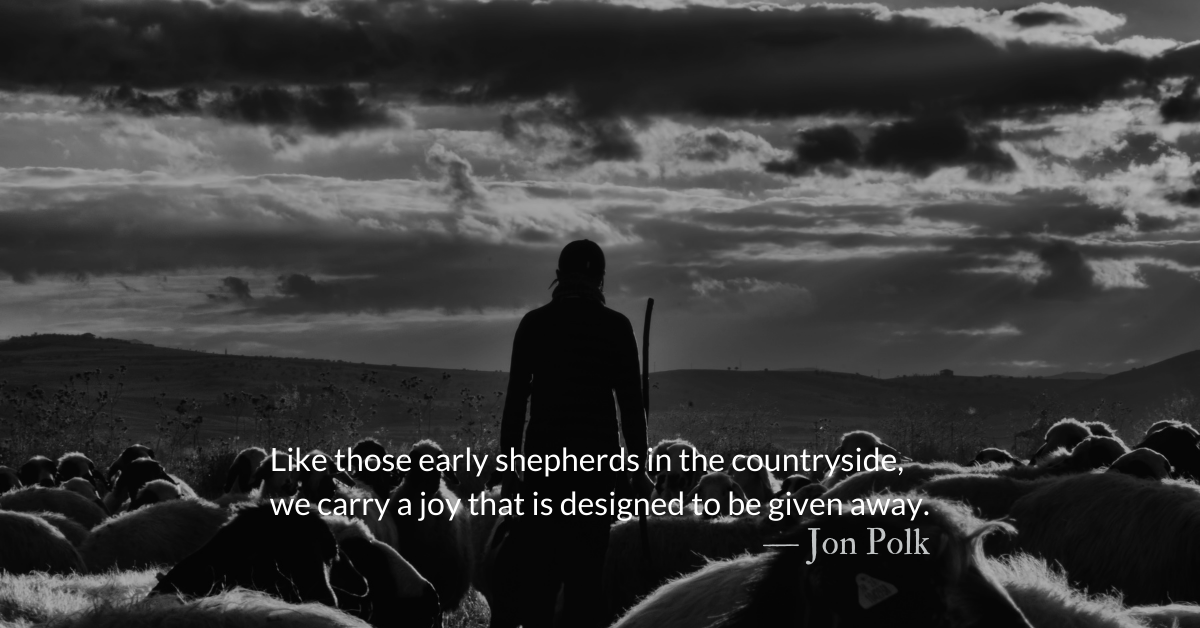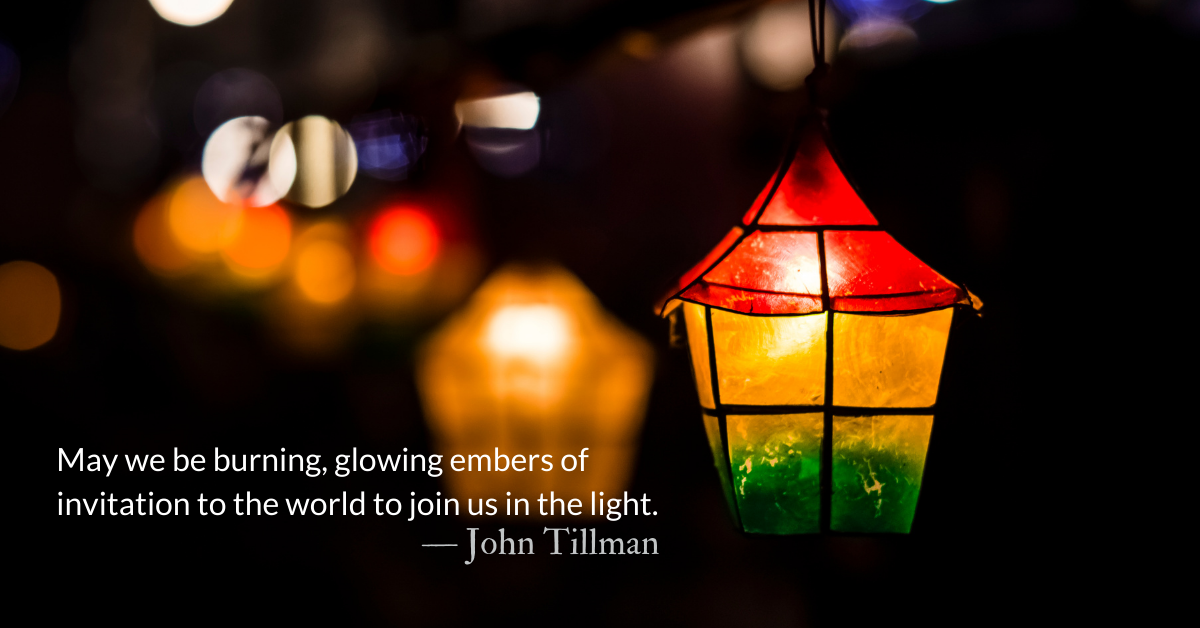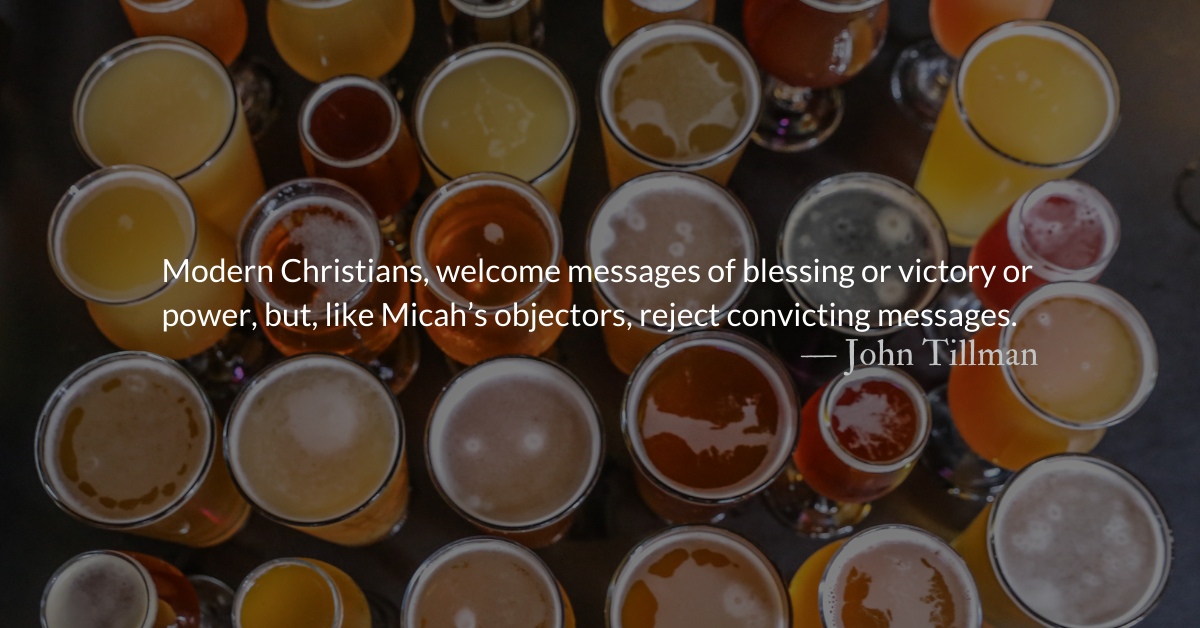Scripture Focus: John 4.28-30, 39
28 Then, leaving her water jar, the woman went back to the town and said to the people, 29 “Come, see a man who told me everything I ever did. Could this be the Messiah?” 30 They came out of the town and made their way toward him.
39 Many of the Samaritans from that town believed in him because of the woman’s testimony, “He told me everything I ever did.”
Luke 2.15-18
15 When the angels had left them and gone into heaven, the shepherds said to one another, “Let’s go to Bethlehem and see this thing that has happened, which the Lord has told us about.”
16 So they hurried off and found Mary and Joseph, and the baby, who was lying in the manger. 17 When they had seen him, they spread the word concerning what had been told them about this child, 18 and all who heard it were amazed at what the shepherds said to them.
From John: I personally have been very much looking forward to the next two weeks. Jon Polk has always been one of the key sources in my life to learn about unique music and artists worth discovering. He is a music connoisseur and collector with a massive collection of music, both on his shelves and in his heart. I know you will be blessed by his exploration of the carols of Advent.
Reflection: Angels We Have Heard on High — Carols of Advent Joy
By Jon Polk
Whenever I recall the familiar passage from Luke chapter two, I cannot help but hear it narrated from the classic words of the King James Version in the voice of philosopher and theologian, Linus Van Pelt.
“Lights, please. ‘And there were in the same country shepherds abiding in the field, keeping watch over their flock by night…’” (Luke 2.8)
The grandiose birth announcement proclaimed by the angels to the shepherds is one of the iconic images of the Christmas story. What Christmas pageant doesn’t feature a couple of shepherds in bathrobes and an angel in a white baptismal robe with a glorious, gold glitter halo?
Of course, this portion of the nativity narrative also forms the basis of many of the carols of Christmas. You may recognize one of the favorites as the “Glo-o-o-o-o-o-ria” song.
Angels we have heard on high
Sweetly singing o’er the plains,
And the mountains in reply
Echo back their joyous strains.
“Angels We Have Heard on High” is an English paraphrase of a traditional French Christmas carol, “Les Anges dans Nos Compagnes” (literally, ‘the angels in our countryside’), by James Chadwick, Roman Catholic Bishop of Hexham and Newcastle, England. The flourishing chorus, “Gloria in excelsis Deo,” is Latin for “Glory to God in the highest,” the first line proclaimed by the gathered angelic host in Luke’s nativity account.
Picture the scene. Shepherds in the countryside somewhere out beyond the edge of the city. Tired, weary, and worn out from the day’s work, but they still must take shifts watching the sheep overnight. Their occupation places them on the lowest rung of the first century social and economic ladder.
Everything changed for them on that fateful night when they heard that first “Glory to God in the highest!”
Shepherds, why this jubilee?
Why your joyous strains prolong?
What the gladsome tidings be
Which inspire your heavenly song.
Joy. Radically transforming, immense, unmistakable joy. These shepherds, normally social outcasts, are now the first ones to be privy to the good news of great joy. What do they do after they find the baby? They head into town to spread the joyous news!
Look for those around you who need a little joy this year. Spend some time this Advent season spreading joy however you can. We can all provide an encouraging word, a helping hand, or a few extra moments of our time. Like those early shepherds in the countryside, we carry a joy that is designed to be given away.
After all, in the words of Linus Van Pelt, “That’s what Christmas is all about, Charlie Brown.”
Listen: Angels We Have Heard on High by Future of Forestry
Listen: Les Anges dans Nos Compagnes by Bruce Cockburn
Read: Lyrics from Hymnary.org
Divine Hours Prayer: The Refrain for the Morning Lessons
On this day the Lord has acted; we will rejoice and be glad in it. — Psalm 118.24
– Divine Hours prayers from The Divine Hours: Prayers for Autumn and Wintertime by Phyllis Tickle
Today’s Readings
Zechariah 1 (Listen – 3:37)
John 4 (Listen – 6:37)
Read more about End of Year Giving and Supporting our work
You can give year-round support for biblical literacy and spiritual rhythms in cities around the world for about the same amount as streaming internet services.
Read more about Do We Know Him? :: Love of Advent
Jesus went out of his way to reach out to those who were considered unreachable, and more than that, unworthy of being reached.











